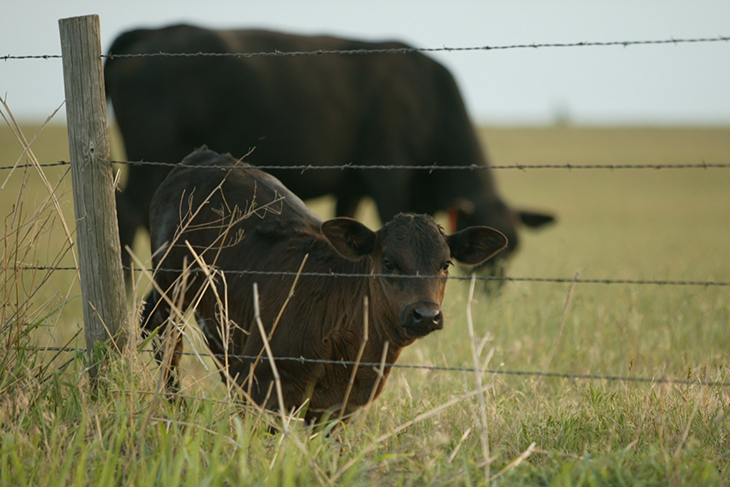
BQA in place and ready to help with beef packer certification requirements
Wednesday, December 19, 2018
Several beef packers have announced recently they will be requiring Beef Quality Assurance certification from their suppliers of fed cattle.
“Fortunately, most commercial feedlots are already BQA certified,” said Bob LeValley, Oklahoma Beef Quality Assurance coordinator with Oklahoma State University’s Division of Agricultural Sciences and Natural Resources. “The packers have indicated the initiative is driven by retailers and consumers.”
The BQA program has been in place for many years. LeValley said it was logical for the beef packers to choose a certification program that was already established and known across the cattle industry as the standard for producing cattle that meet quality and safety expectations.
BQA is a nationally coordinated, state-implemented program that provides information to U.S. beef producers and consumers about how common-sense production techniques can be coupled with science-based knowledge to raise cattle under optimum management and environmental conditions.
“While BQA certification is voluntary for cow-calf producers and stocker-cattle operators, it is also typically just good business,” LeValley said. “Good management practices are the core of the BQA program, and often add value to cattle as they progress through the beef industry’s marketing channels.”
The Oklahoma Quality Beef Network value-added program has documented calves following a vac-45 type of preconditioning program will generally sell at a premium price, compared to non-preconditioned calves.
“One would expect cattle handled and transported in a low-stress manner will shrink less, which is a major concern of the beef industry,” LeValley said. “The potential for bruising and injuries to the animals also will be reduced.”
Cattle producers and industry personnel can become BQA certified in Oklahoma by in-person training or by taking advantage of online resources at BQA.org.
“Some cattle producers have found it advantageous to use BQA as a training program for new employees,” LeValley said. “It is a method to introduce new hires to industry accepted best management practices, as well as expectations relative to good cattle management and handling principles.”
Additional information regarding BQA certification can be found online at http://www.beef.okstate.edu/ or the Oklahoma Beef Council website at https://www.bqa.org/.
Oklahoma cash receipts for cattle and calves exceed $3.8 billion annually, according to USDA National Agricultural Statistics Service data.
